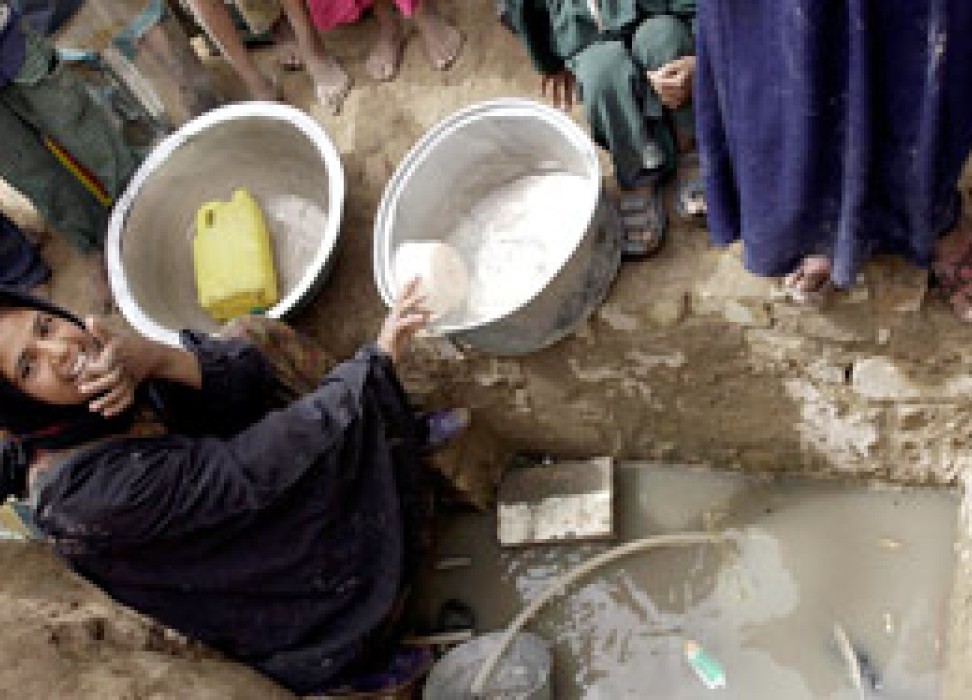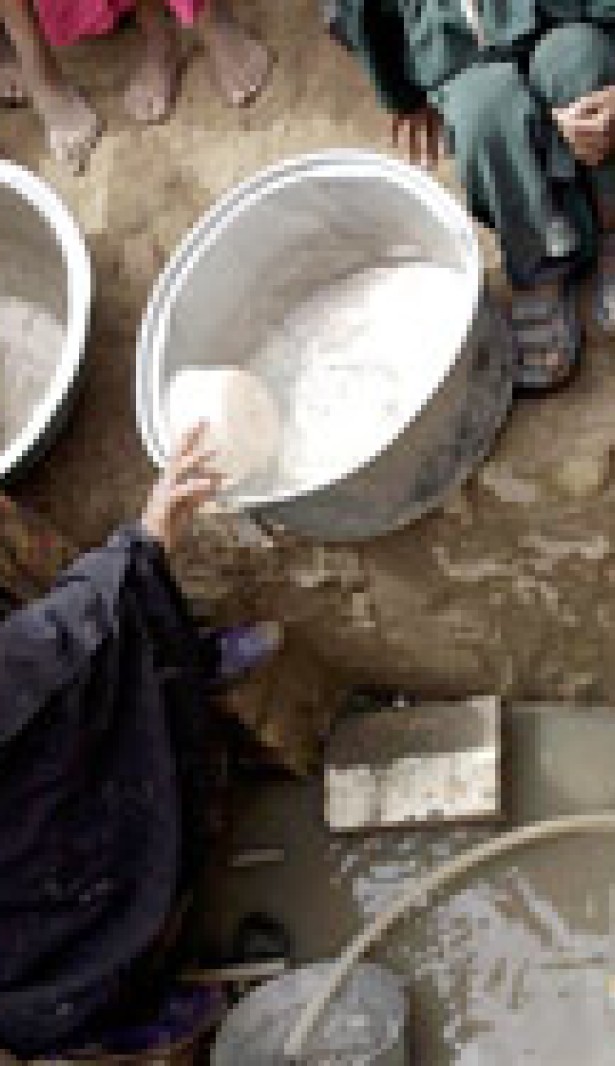Bearing the brunt of economic sanctions
17 June 2014

Experts in Geneva discussed the impact on human rights of unilateral coercive measures – which include economic and trade sanctions – during a workshop organised by the UN Human Rights Office.
Craig Mokhiber, Chief of the Development and Economic and Social Issues Branch at the UN Human Rights Office, opened the workshop on behalf of the High Commissioner. While recognizing that this was a controversial political question, he said "International human rights law prohibits discrimination, and international humanitarian law prohibits collective punishment. Every effort must therefore be made to limit overly-broad unilateral coercive measures.”
“Where there can be no disagreement is that all human beings have human rights, wherever they reside. No State should ever impose measures against another that are in breach of its human rights or humanitarian law obligations under treaty or customary international law,” Mokhiber added.
“Sanctions are war by other means, analogous to siege and blockade,” said Sarah Zaidi, co-founder of the Centre for Economic and Social Rights, giving her views on coercive unilateral measures. “Damaging the national economy on which ordinary people depend for their health and welfare is the primary means by which sanctioning states seek to impose their will on sanctioned states, force a change in government behaviour, and achieve other policy goals.”
She highlighted that according to the Security Council’s November 2013 report, sanctions are applied to effectuate five main outcomes: conflict resolution, non-proliferation, counter-terrorism, democratization, and the protection of civilians. However, she noted that decades of sanctions had demonstrated that these objectives were rarely attained.
“If sanctions are not designed from the outset with human rights principles in mind, any attempts to mitigate their humanitarian effects after the fact will be minor and insignificant,” Zaidi stressed. “The rights and well-being of civilians and vulnerable populations cannot be sacrificed because their governments are in conflict with powerful States or multilateral institutions,” she added.
Mohamed Younis, Senior Analyst at Gallup presented the results of surveys of life satisfaction and the effects of sanctions in Iran. Between 2011 and 2013, the proportion of respondents that considered that sanctions of the United Nations, the United States and Western Europe would greatly hurt the livelihood of Iranians almost doubled.
Half of Iranians surveyed in 2012 and 2013 held the United States most responsible for the sanctions, compared to around 10 percent who felt their own government was most responsible. Sixty-eight percent of men and sixty-two percent of women believed that Iran should continue to develop its nuclear power capacity despite the sanctions. Younis concluded that the results of the surveys sparked questions about what sanctions actually accomplished.
Dursun Peksen, Assistant Professor at the University of Memphis, said that economic sanctions failed to achieve their goal 65-95 percent of the time: Governments and ruling elites found ways to counter these measures, while vulnerable groups, because of their disadvantaged position in society, bore the brunt of economic instability caused by pressures.
“Target elites respond to foreign pressure by shifting public resources to military equipment and personnel to enhance their coercive capacity, or redirecting the scarce resources and services to its supporters - such as those in police, military and civil services - to maintain their loyalty and support,” he said. “They can also involve themselves in sanction busting activities through illegal smuggling and other underground transnational economic channels.”
Peksen also said that sanctions could undermine trade with neighbouring or third-party countries. “More unrest and instability in the targeted country triggered by sanctions would also pose threats to the political stability of neighbouring countries, causing inter-state and civil wars.”
One of the ways sanctions could promote human rights was in the targeted fight against corruption, revealed Susanne Kühn, Head of Public Sector Integrity Programme at Transparency International.
Kühn explained that corrupt individuals exploit borders to escape prosecution and launder bribes in foreign countries thanks to diplomatic immunity, foreign high-level ties or because they owned bank accounts overseas.
“Broad economic sanctions can have a negative impact on the population, but ‘smart sanctions’ that target corrupt individuals can prevent them from enjoying proceeds from corruption and money laundering,” she said. “This would send a strong signal to ending impunity related to corruption.” She warned, however, that targeted measures needed to be implemented with the highest degree of transparency to avoid politically motivated abuses.
Haifa Zangana, novelist and journalist, presented the devastating effect on women and children of over 13 years of economic sanctions approved by the Security Council against Iraq.
Zangana said that widows of men killed in the Iraq-Iran war, the first Gulf war and the continuous bombardment of Iraq “to contain” the regime, were the first victims of the cuts in state welfare. As heads of households they could not buy food or medicine and had to survive mostly on charity.
“To survive became the priority. Contrary to what the architects of the sanctions thought, Iraqis had been too weak to change the regime and in the process they lost the will to change,” Zangana said.
Denis Halliday, former UN Humanitarian Coordinator in Iraq, said that the ‘smart’ measures such as the ones adopted after the failure of indiscriminate sanctions in that country still had severe repercussions on the civilian population.
“Smart’ sanctions may aim at the leadership and the decision makers, but the trickle down of their inconvenience tends to be felt as acute pain and worse at the level of the most vulnerable,” Halliday said.
“Given the dangers facing us all today, with state and non-state violence in many parts of the world, positive rather than punitive intervention might be more productive,” he added.
The UN Human Rights Office will present to the Human Rights Council a report on the experiences shared by the panellists during the Council’s 27th session in September 2014.
17 June 2014
